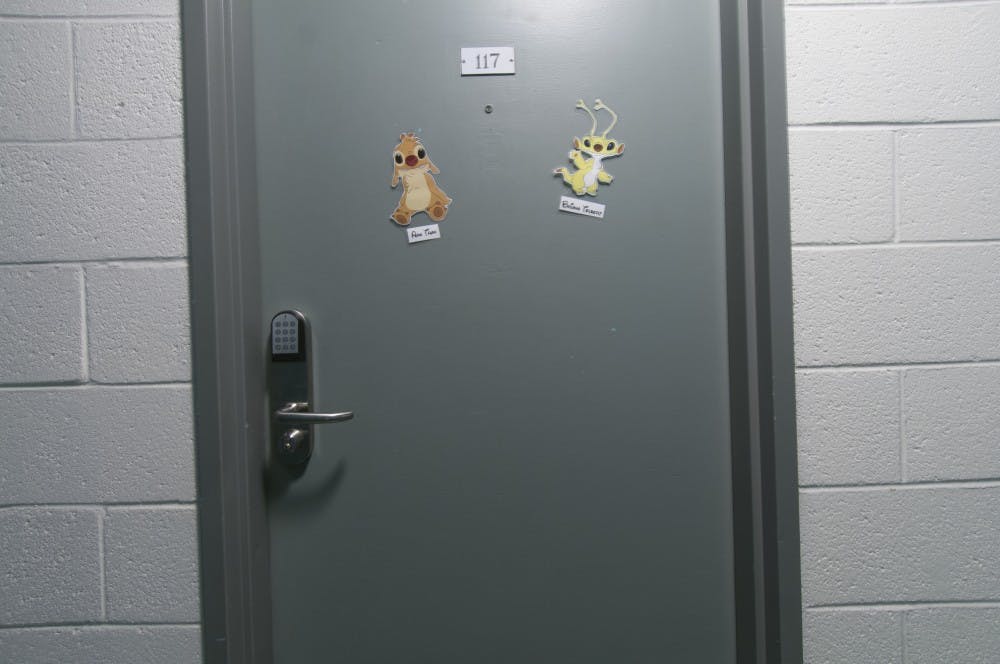
The new electronic lock system, requiring PennCards rather than traditional brass keys, has been installed throughout several dorms, with plans to come for other college houses.
Credit: Daniel XuSome students living on campus this year will notice an upgrade from traditional brass key locks. The new electronic lock system, which requires PennCards to enter rooms, has been installed in several college houses.
Currently the locks are installed in Gregory College House and New College House. Kings Court English College House has the proper hardware installed, but its residents will be using brass keys this semester, and though Hill College House is unoccupied this year, its residents will use the new technology in the fall of 2017.
The system “will be cheaper and more convenient for students as well as offering more security,” Director of Residential Services John Eckman said in a statement.
Students will no longer incur a fee for lost keys that can run over $200. The new lock-out fees are under review, but students can currently obtain a replacement PennCard for $30, according to the Penn Business Services website.
With the brass key system, the University maintained a strict set of safety standards, requiring a locksmith to replace the entire room’s locks if a key was lost. These measures were the reason behind the high replacement fee.
The contactless system requires students to present their PennCards and enter a unique four-digit code to access their room. If a PennCard is misplaced or left at home, the University can issue temporary cards for the student to use. Additionally, cards can be instantly deactivated to prevent others from entering rooms.
The decision to transition to electronic locks comes after a two-year pilot test in Gregory College House. The building upgraded to a mechanism designed by SALTO Systems after a flaw was discovered in the previous system, Eckman said.
An expected completion date has not yet been set, although the plan is to install contactless locks in all college houses. Last spring the Board of Trustees approved a $7.85 million budget allocation for the replacement of 6,000 brass key locks.
The upgrade is not limited to dorm rooms. Offices, lounges, and housekeeping spaces will use the new electronic system as well. In addition, some dorm rooms will have personal locks installed in front of each bedroom.
In order to make the transition to contactless locks across campus, the University will phase out the traditional magnetic strip-based PennCards. About 90 percent of PennCards are already using contactless chips, while the remaining 10 percent will eventually expire and need to be renewed.
The new system promises to be more flexible and student-friendly. Until the transition is complete, though, many students living on campus will have to stomach the risk of an expensive key replacement.
The Daily Pennsylvanian is an independent, student-run newspaper. Please consider making a donation to support the coverage that shapes the University. Your generosity ensures a future of strong journalism at Penn.
DonatePlease note All comments are eligible for publication in The Daily Pennsylvanian.







